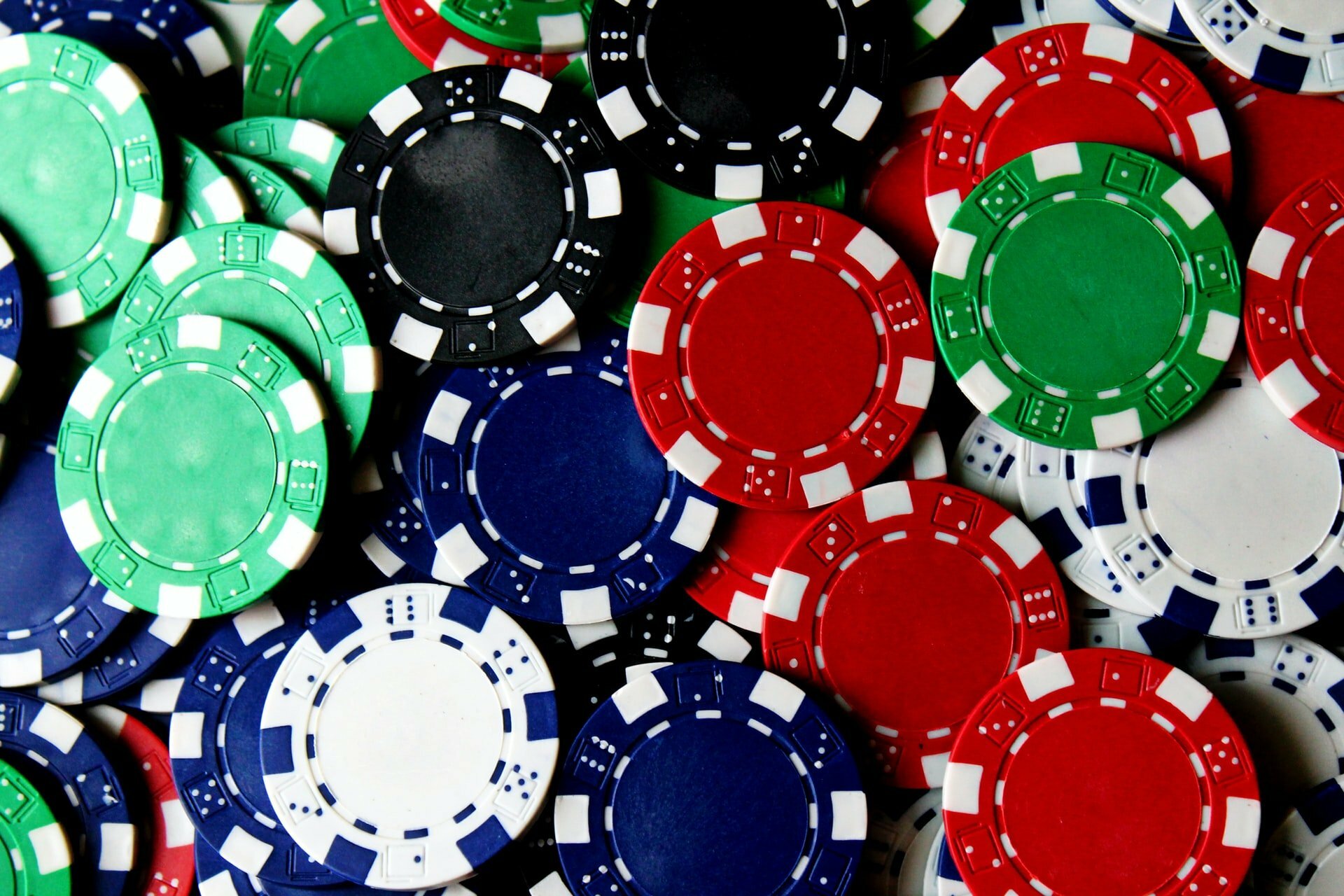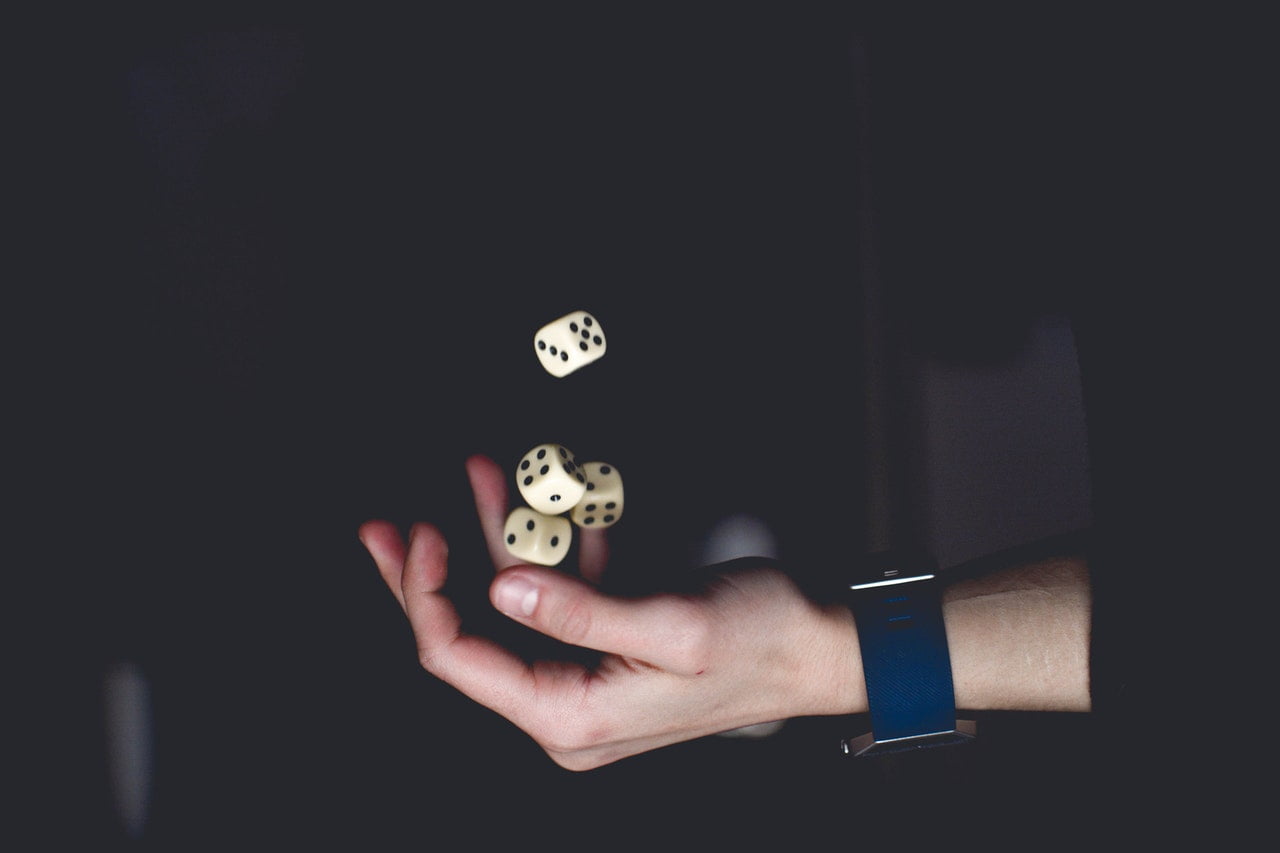- Home
- Types of Addiction
- Gambling Addiction Help & Treatment
Gambling Addiction Help & Treatment
The area of specialist addiction treatment has tended to focus predominantly on drugs and alcohol misuse, but not all addictive behaviour involves the consumption of substances.
The rise of digital gambling machines, online games and phone apps has led to an increase in cases of gambling addiction.
When this is coupled with the strong emergence of internet-based sports gambling then it is easy to see how many people are tempted by the readily available opportunities there are to gamble in the 21st Century.
The number of people who have become addicted to gambling in its various forms has grown dramatically over the past 20 years with many high-profile cases of people becoming bankrupt due to excessive gambling.
This has included many professional sportspeople who earned thousands of pounds every week during their peak years.
Symptoms Of Gambling Addiction
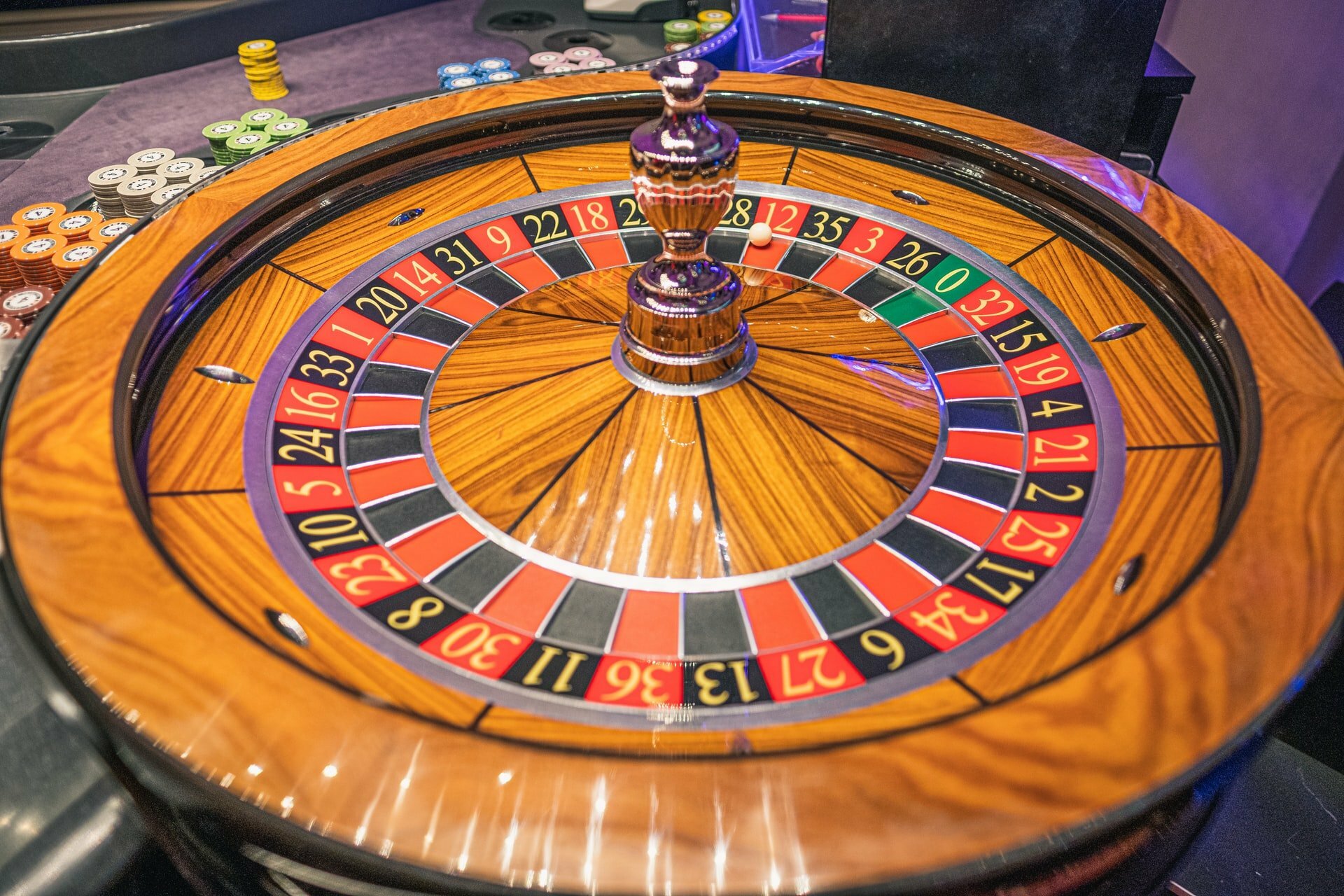
Do you know someone who is worrying you by exhibiting a possible addiction to gambling?
Try asking yourself the following questions.
- Do they seem to be having problems with money but dismiss these or get angry if questioned about it?
- Are they preoccupied with gambling and tend to do it a lot at the expense of relationships and other commitments?
- Do they stay out all night at casinos or betting shops, or spend a lot of time on their computer using virtual gambling sites?
- Have you found money or valuables going missing with no explanation, followed by another “binge” of gambling activity?
Consequences Of Gambling Addiction

There is no physical dependency involved with gambling addiction, so people who become addicted to gambling will not suffer a direct and immediate deterioration in their physical health.
However, it can have a devastating psychological impact, seriously damaging their mental health, which in turn can affect their physical health.
Problem gamblers can lose thousands of pounds, their homes and their businesses, which can eventually lead to a breakdown in close relationships and an irreparable collapse in family units.
Research has indicated that debts of £60,000 or more are commonplace among heavy gamblers.
Gambling Addiction Defined
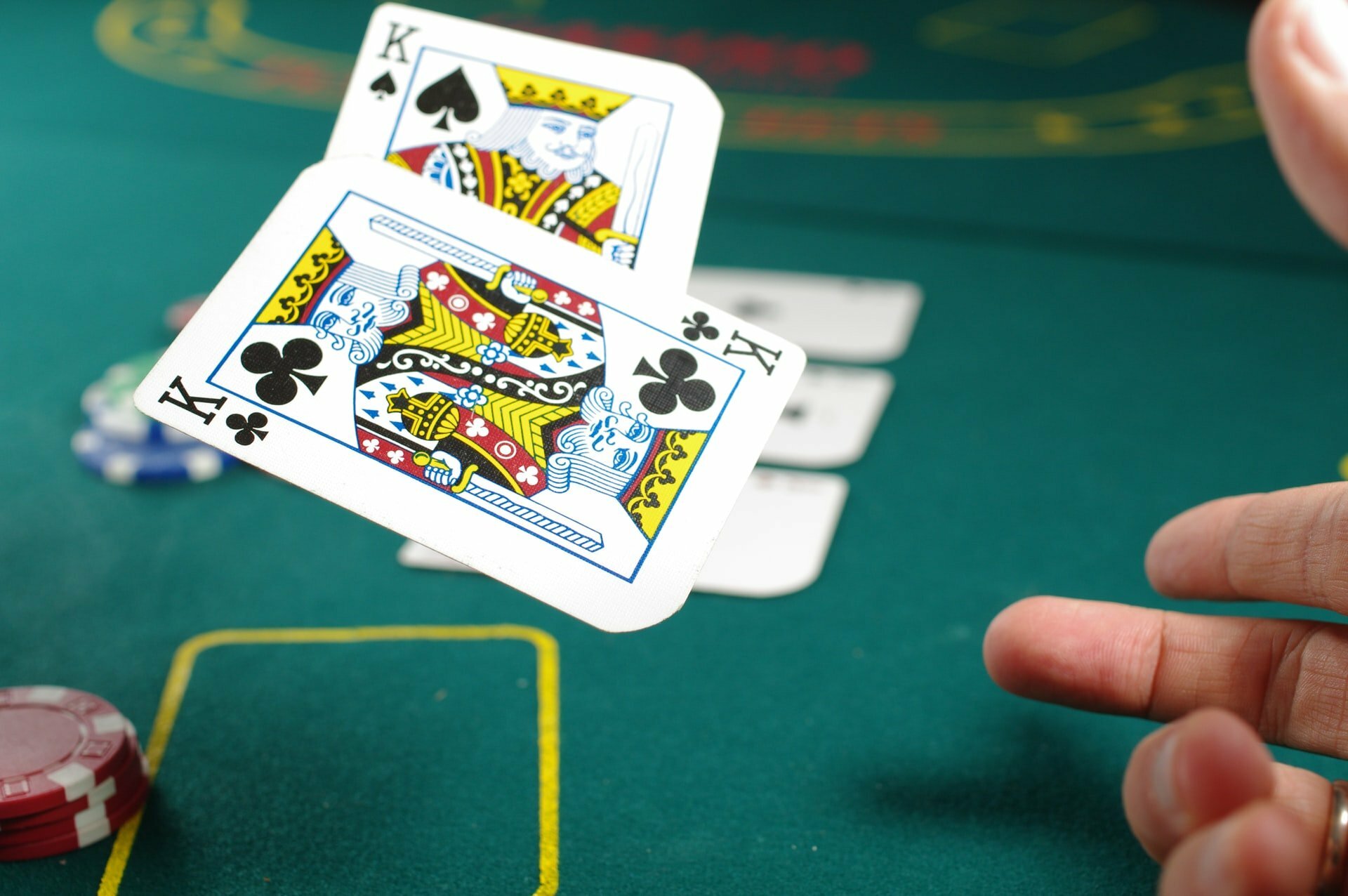
Gambling addiction has been defined as a persistent ongoing pattern of maladaptive gambling behaviour that is accompanied by significant emotional turmoil.
This comes alongside a bias and disturbance in cognitive functioning that impacts many areas of a person’s professional and social life, often to the point where their lives become unmanageable.
This is exhibited in a preoccupation with gambling and an inability to curb any desire to give up the behaviour despite the negative consequences.
The act of gambling absorbs a person’s perception and cognition to such a degree that it distracts them from all their usual daily activities whether it is related to education, family, work or recreational activities.
The act of gambling becomes an addiction when it starts to erode a person’s awareness and provides some sort of gratification.
Eventually, people will not gamble for pleasure but to avoid pain and distress, which will eventually lower self-esteem.
Tolerance And Withdrawal
Even though gambling addiction does not involve the physical processes of tolerance and withdrawal, there is evidence that these concepts exist at a psychological level in those who become addicted.
For example, gamblers will need to bet with more money, or gamble more often to retain the level of excitement that they initially experienced, because of the intensely rewarding feelings it provides for them.
They, therefore, tend to experience psychological withdrawal symptoms when they try and stop or cut back on their gambling.
This is the nature of psychological dependence and the withdrawal symptoms they may experience will be low mood, depression and boredom.
Research has revealed that many people gamble to escape personal problems or uncomfortable emotional states, similar reasons to substance users.
Loss Of Control
Along with this, many problem gamblers report being unable to control their gambling behaviour despite wanting to cut down or stop their gambling.
It is also clear that they are preoccupied with gambling and think about it constantly most days, to the point where it has taken over their lives and led to them being unable to carry out their usual day to day responsibilities.
As a result of their gambling behaviour, many will have withdrawn from activities that they previously found pleasurable.
They may continue gambling despite the risk of them losing their jobs and the negative effect it will have on their close relationships.
Gambling And Inaccurate Beliefs

Pathological gamblers develop the false belief that there is a strong element of skill involved in winning money.
The reality is that any wins they experience are most often due to luck, so they, tend to overestimate their skill level and underestimate the role that luck plays in the successes they have.
They may feel that their strategies are the reason that they won, which is a wrong assumption.
Pay-outs are often down to the way gambling machines or terminals are programmed, and most systems always pay out in the end regardless of strategies employed by individual gamblers.
There is also a tendency for gamblers to have a poor understanding of maths and statistics and concepts of odds, risk and probability, despite them believing the opposite which contributes to their downfall.
Why Do People Become Addicted To Gambling?

It was previously assumed that the main reason people became addicted to gambling was because of the huge cash prizes on offer.
However, even though that may provide part of the answer, subsequent research has revealed that many people continue to gamble after winning large amounts of money, and in some cases to such a point where they lose it all.
This suggests that there must be another motivating factor causing people to gamble excessively.
The Psychological Thrill
It is true that many pathological gamblers are driven to gamble by the “buzz” of excitement and anticipation that is associated with the chance of winning money.
The whole psychology of the gambling experience is manipulated by gambling and betting companies who have human behaviour consultants who understand the vulnerabilities of the human mind.
Gambling companies are therefore able to take advantage of psychology to exploit human weaknesses.
For example, the sights and sounds that are generated when winning on a slot machine leaves a significant emotional association and stamp on the human mind, which influences gamblers’ future behaviour.
Technological advances now enable researchers to study the brain more carefully than they have been previously able to
They have concluded that people who become addicted to gambling experience a heightened state of awareness when playing.
This is often referred to as a buzz or high, similar to what people who consume stimulant drugs experience.
Gambling And Escapism
This newly found state or heightened mood enables people to detach themselves from their everyday troubles and absorb themselves psychologically somewhere else, becoming a form of escapism.
This is particularly the case if gambling is used to avoid pain rather than gain authentic pleasure, as this tends to erode their self-esteem and prevents people from getting on with their life goals and responsibilities.
At some stage in their lives, many addictions that people succumb to were once enjoyable activities that eventually become excessive and then eventually harmful.
The Neurobiology Of Gambling Addiction
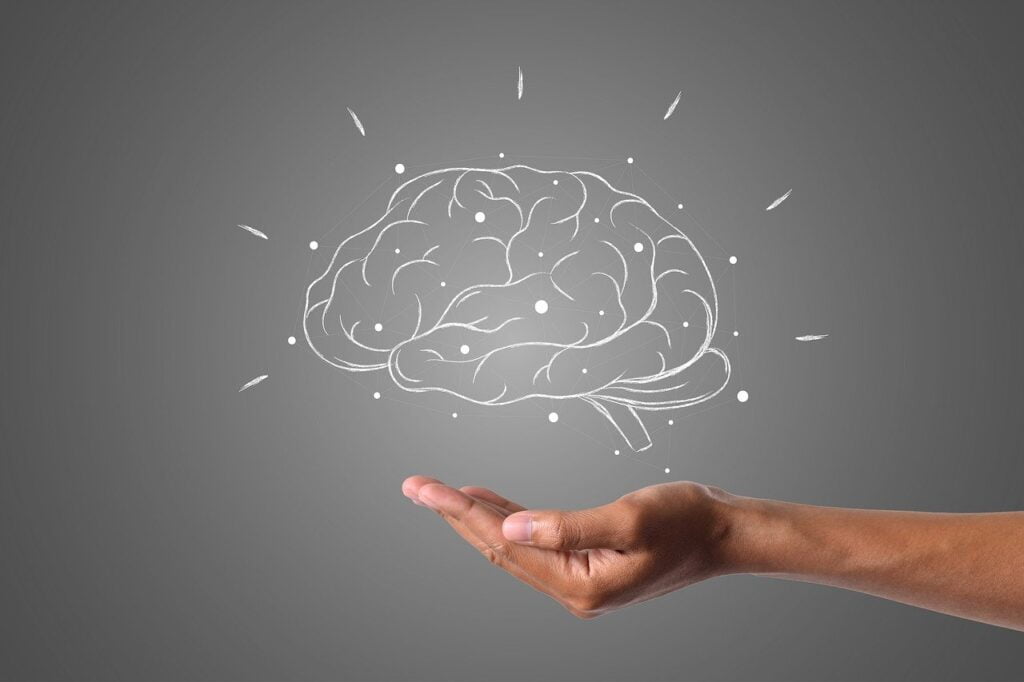
The key to understanding gambling addiction lies in understanding the mechanisms of our brain neurobiology.
A behavioural addiction such as gambling can train and activate the brain’s processing systems to become fixated on the rewards generated by the gambling process without the need for a drug physically affecting brain activity.
The consequence of becoming involved with an activity like gambling is that the brain releases dopamine -which makes us feel pleasure- and this reinforces the likelihood that we will want to engage in this activity again.
This is the same feeling people obtain when taking drugs such as heroin.
Criteria For Gambling Addiction

Anyone who meets 4 or more of the following criteria over one year will be diagnosed with a problem gambling disorder:
- Needs to gamble increasing amounts of money to achieve the same level of desired excitement.
- Becomes restless or irritable when cutting down or unable to gamble (psychological withdrawal).
- Has attempted many times but failed to cut back or stop gambling.
- Is regularly preoccupied with gambling (e.g., having persistent thoughts of reliving past gambling experiences, planning the next venture, thinking of ways to get money with which to gamble).
- Often gambles when feeling emotional, such as when in a state of psychological distress (e.g., helpless, guilty, anxious, depressed).
- After losing money gambling, there is a need to regularly return another day to get even.
- Lies to others to hide the extent of their gambling.
- Has jeopardized or lost a significant relationship or job because of gambling.
- Relies on others to provide money to relieve their desperate financial situations caused by gambling.
Risk Factors For Gambling Addiction

Some people are more at risk of developing a gambling addiction if certain conditions are pre-existing in their lives.
This includes:
- Having a highly competitive personality.
- Being a risk-taker.
- Being a person prone to impulsive behaviour.
- Being restless or easily bored, and therefore lured by the potential of excitement.
- Gambling during adolescence, or being in a family environment that involves gambling.
- Having an unstable home life or experiencing childhood trauma.
- Having a mood disorder.
- Poor and older people have been found to be more vulnerable on average.
Treatment For Gambling Addiction

A large proportion of problem gamblers have another mental health condition running alongside their gambling addiction, a condition referred to as dual diagnosis.
Therefore, a great deal of care and understanding is required when devising a treatment programme for them that meets all of their needs.
Cognitive Behavioural Therapy (CBT)

CBT based interventions have several uses when applied to treating gambling addiction, CBT has been used very successfully by NHS IAPT services in treating mild to moderate anxiety and depression.
CBT will play a key role in addressing the negative thought patterns and low moods that people who have succumbed to the lures of excessive gambling will experience.
CBT therapists will encourage clients to adjust their deeply ingrained negative thoughts and slowly replace them with positive ones, letting them improve their self-esteem and move forward without the need for gambling dominating their consciousness.
Cognitive Restructuring
Additionally, CBT based interventions can also be utilised to address the cognitive biases and incorrect assumptions (e.g superstitions or a misunderstanding of odds) that many gamblers exhibit.
Key treatment involves educating clients about the nature of their thinking style via a process called metacognition, which facilitates people’s ability to become more self-aware.
Gamblers tend to have automatic, incorrect thinking patterns and are unable to change their automatic responses even if it’s apparent that it’s not working.
Therapists will work with gamblers to develop strategies to avoid or replace problematic, incorrect and exaggerated thoughts and beliefs.
It will also often help them improve their reasoning skills and understanding of complex mathematical concepts relating to statistics and probability.

Financial Counselling
It is also considered important to offer clients financial counselling to help them understand how to organise their finances.
It may be helpful to let other people control their finances when they are in a vulnerable state, as impulsive gambling at an extreme level can make gamblers and their families homeless and without essentials such as food and clothing.
They can also seek advice on how to restructure their debts and have a new payment plan mapped out for them.
Individual Counselling
As well as combatting poor thinking styles and irrational beliefs, people who become addicted to gambling need to consider the role of various psychological and emotional factors in their lives that may have contributed to their condition.
This can be achieved by engaging in several sessions of 1-1 therapy, aiming to tackle these personal issues under professional scrutiny.
Motivational Interviewing (MI)
Motivational Interviewing can be used at any time with clients before and during the treatment process to help them overcome any resistance they may have towards treatment engagement.
The therapist will work with the client, showing empathy and encouragement to help them identify the reasons for their resistance and then initiate a discussion to help them find the motivation necessary to commit to treatment.
Dialectical Behavioural Therapy
Like most people who have become addicted, gamblers also need to learn to deal with their emotions more effectively so that it does not influence their addictive behaviour so strongly.
Dialectical Behavioural Therapy can play a key role in providing an opportunity for clients to obtain the ability to deal with tough emotions in the safety of the therapy room.
Medication For Gambling Addiction

Because in some ways gambling addiction shares similar characteristics to substance addiction, certain medications can be effective in reducing a client’s gambling urges.
For example, research has found that opiate antagonists have the potential to reduce the strong cravings that gamblers experience.
These opiate antagonists are so effective because they contain chemicals that block the pleasurable feelings that gamblers experience, which reinforces their addiction.
People who take opioid antagonists report that gambling is no longer as pleasurable as it previously was, which plays a huge role in them being able to reduce the number of occasions they gamble.
Antidepressants also have the potential to be used as a form of treatment as they can restore a dopamine imbalance in the brain that can lead to an addiction.
However, more research is needed in this area as some antidepressants can trigger a manic episode in certain people who are vulnerable to bipolar disorder, which may make them more likely to gamble.
Expert Help for Gambling Addiction

GamCare
GamCare is a domestic charity that provides expert support for those who have become addicted to gambling.
They also provide support, information and guidance for relatives of problem gamblers as well.
There is a freephone number on their home webpage and they also operate a 24/7 telephone helpline for those who require advice on a range of topics relating to gambling addiction.
They also offer group chat and forum message boards to provide people seeking help with a degree of anonymity, which will encourage them to seek help and take advantage of Gamcare’s excellent resources.
Anyone seeking support can search for treatment can search for gambling addiction treatment experts in their locality on Gamcare’s website.

Gordon Moody Association
Another UK charity that specifically helps people whose lives have been blighted by gambling addiction is the Gordon Moody foundation.
They offer a range of services, information and resources including:
- Self-assessment screenings.
- Male and female-only residential treatment centres.
- Retreats and home counselling combination programme.
- Online outreach service.
- Gambling therapy “live support”, which is a confidential text-based service with a qualified therapist.
- Support for family and friends.
National Problem Gambling Clinic
The NPGC is a coordinated, comprehensive service that brings many gambling addiction treatment providers together to provide assessment, treatments, advice, guidance and information.
This clinic utilises the skills and knowledge of an array of healthcare professionals who specialise in behavioural addictions such as psychiatrists, therapists, psychotherapists and clinical psychologists who have received doctoral standard training in mental health and addictions.
They are committed to working with high quality, up to date treatment models for people with gambling addiction, with a focus on constantly reviewing and updating treatments to combat gambling addiction.
The areas of work they specialise in include:
- Individual psychological interventions using established and reliable treatment methods.
- Behavioural therapy for couples.
- Support groups for problem gamblers.
- Regular psychiatric reviews.
- Review and selection of appropriate medication for problem gambling.
- Comprehensive aftercare services.
Gamblers Anonymous (GA)
Gambler’s Anonymous, similar to Alcoholics Anonymous and Narcotics Anonymous, is a fellowship for people who have developed an addiction to gambling.
Gambling addiction may be a behavioural addiction, but the principles of the GA movement are very similar to and have been adapted from the classic Alcoholics Anonymous philosophy.
GA offer people regular weekly meetings to help clients build relationships with people who have struggled with similar experiences.
Get Help For Gambling Addiction

Finding the right treatment service that can help you live free of an addiction to gambling is often a complicated and time-consuming process.
If you need urgent help and are finding the wide variety of treatments on offer overwhelming, we are here for you.
Our gambling addiction treatment assistance gives you:
- A free help and evaluation service to help you choose
- Guidance on the best treatment options for your circumstances
- Assistance in picking out the most cost-effective options
- Information on quality of care, best clinical practice and more
- Complete clarity so you can make the right choice of treatment
Call today in complete confidence on 08000 886 686 to take your first steps on the road to a happy and healthy new life.


